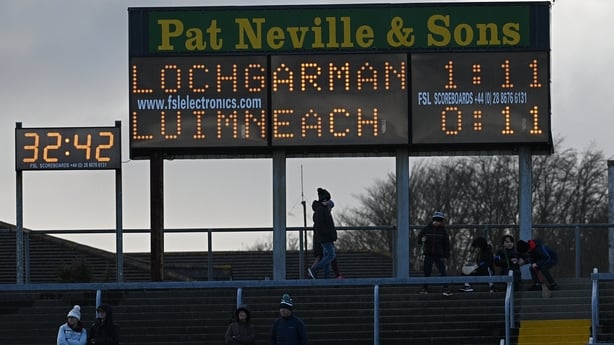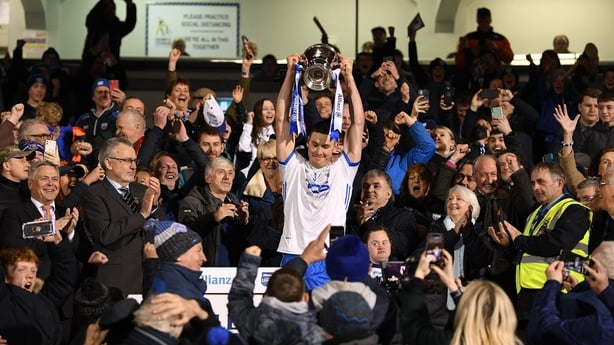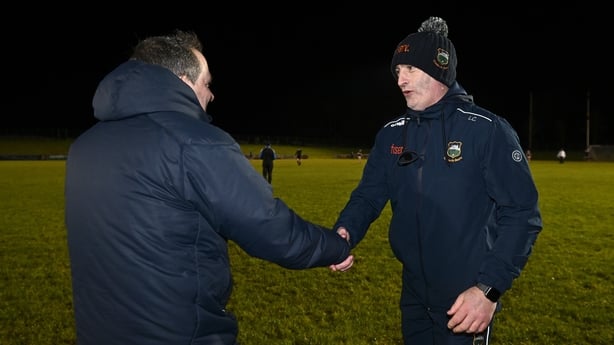The world is what you make it - or so Paul Brady sings.
And also now, it seems, is the Allianz Hurling League.
The spring competition was traditionally a time to find a few players and build momentum ahead of the more serious business of championship. And who wouldn't want a bit of silver to take a few selfies with?
These motivations still have some appeal but new realities must also be considered.
Starting from today, the 12 Division 1 teams will play five games over the next seven weekends. There are also semi-finals and those reaching the decider on 1/2 April will be out for seven of nine, with a three-week break to the start of the provincial championships.
The round-robin means a further four (Munster) or five (Leinster) games in five weeks so it’s a hectic schedule, even before the provincial finals and All-Ireland qualifiers.
Limerick had an underwhelming league last year, needing to avoid defeat against Offaly in the final round to avoid a relegation play-off.
The Green Machine was straining but apparently only because they had adopted a different approach to the competition – taking a longer break and doing the 'pre-season’ fitness training during the league rather than before.
"People were writing us off but we knew that when the real stuff started we would be ready," Gearoid Hegarty revealed later in the year. "We were training hard and I think we timed our run well."
The proof that they did was delivered with a third Liam MacCarthy Cup, and fourth in five years, come July.

Limerick’s strategy might not suit everyone. They already had a very settled side and trophies galore. But when contrasted with the fate of the teams who contested the 2022 league final - Waterford and Cork – it could prove a popular one this year.
"Every year, the approach that wins the All-Ireland is the best one for that particular year," says Kieran Kingston, Rebels boss last season.
"What happened to Waterford in 2022, not getting out of Munster, and Cork to a lesser degree, losing the first two championship games and then regrouping to get out, will have strengthened that approach.
"There is no question that the league will be less relevant for some teams that are further down the line in terms of their development. The teams that are together that bit longer, where you could probably identify 13 or 14 of their team before the season starts.
"The league will be incorporated into their pre-season, like some teams would have done last year.
"With the congested nature of the season that we have now and where teams are in their own evolution, they will be looking at it very closely in terms of getting that timing right."

League champions Waterford were widely expected to be the Treaty’s closest challengers - "We are the team to beat" former manager Derek McGrath memorably declared – but things went badly wrong for Liam Cahill’s men in Munster as they lost three of four, only beating a rebuilding Tipperary, who Cahill has now returned home to manage.
Déise forward Stephen Bennett told RTÉ Sport that he wasn’t sure that winning the league had been a negative, pointing out that it hadn’t done any harm for football double champions Kerry, though they admittedly had a far less compressed championship schedule.
However, Bennett did accept that: "It's hard to stay at a peak level for four or five months. So maybe there was an element of that, because we weren't good enough when it came to it."
It’s not all about fitness though. Kingston says that while he might do things differently now, Cork’s attitude to the competition last season had been influenced by their heavy All-Ireland final defeat to Limerick the previous August.
"When the league is going well for you, winning breeds confidence. We had lost an All-Ireland final and it was important for the confidence of our group to see if we could get a national title. When you beat Kilkenny in a league semi-final you’re on the merry-go-round and you want to continue.
"If we had won the league, for the first time since 1998, we might have said it was great. Not having won it, I think my approach would be slightly different.
"We put a lot into the league last year. The final didn’t go well for us and we carried a few injuries, players maybe played that could have done with a rest in advance. I think that hurt us in the first two championship games. We had a bit of a break and then we regrouped."

Seven of the 17 teams in contention for Liam have new managers: Cork (Pat Ryan), Dublin (Micheál Donoghue), Laois (Willie Maher), Division 2A Offaly (Johnny Kelly), Kilkenny (Derek Lyng), Tipperary (Liam Cahill) and Waterford (Davy Fitzgerald).
Compared to sides further down the road, Kingston expects they will need to see a truer test of their players over the next two months, as they seek to shape a starting XV for the end of April.
"They're trying to assess the character of their group, getting to know individual players and see what kind of attitude these guys have.
"They might know maybe 10 of their best team so they’re looking at finalising that best 26 heading into championship, maybe giving exposure at that level to some youngsters coming through and seeing how they adapt to it.
"Looking at problems they may have in certain positions where they might be looking at option A or option B. The congested nature of the season means if you lose a player you need to know who can step in there.
"For that second group, their season will have started that bit earlier and [training] will probably ease during the national league as those games will be a bit more important to them, compared to the first group."
The current format of only one team being relegated from the top tier out of 12 means the genuine All-Ireland contenders can afford to experiment without much danger. But for those who aspire to join them, losing regular exposure to elite opponents would be a blow.
"The league may not be as important to some counties now as it would have been in other years," says Seamus ‘Cheddar’ Plunkett, who finished a second spell in charge of Laois last year.
"It would depend on the previous season, if you had to build confidence then you might put more emphasis on winning games. But winning it is not the be-all and end-all, it’s all about championship. Particularly for teams that go late into the year and have aspirations of winning All-Irelands.
"For Laois, Antrim, Westmeath, they need to be playing at Division 1 level to understand the speed and smartness of that hurling.
"Very few All-Ireland winning teams come from absolutely nowhere. Being competitive at this level is a first step for a lot of teams. So you can’t dismiss the hurling league. You might not get the wins against the big teams but if you are competitive you have something to build on."
Westmeath will have a tough task to avoid the play-off: they are in with Clare, Cork, Galway, Limerick and Wexford in Group A. They might hope to go one better than last year’s draw against the Model men when they return to Mullingar next week.
Limerick’s trip to Páirc Uí Chaoimh is live on RTÉ2 tonight (7.30pm) while earlier Wexford host Galway in what will double as the Walsh Cup final, arguably now the pre-pre-season Leinster trophy.
Laois and Antrim will face each other in round four, in between Group B meetings with Dublin, Kilkenny, Tipperary and Waterford, four teams whose players might have a point to prove to their new managers. The Déise welcome the Dubs tomorrow in the pick of those first round clashes.
Don’t expect to see any empires fall or made. But a mighty man or two might be found as teams pick up the pieces and hit the road again.
The league is what you make it.
Watch Cork v Limerick live on RTÉ2 and RTÉ Player from 7.15pm Saturday and highlights of the weekend's action on Allianz League Sunday, RTÉ2, 9.30pm


